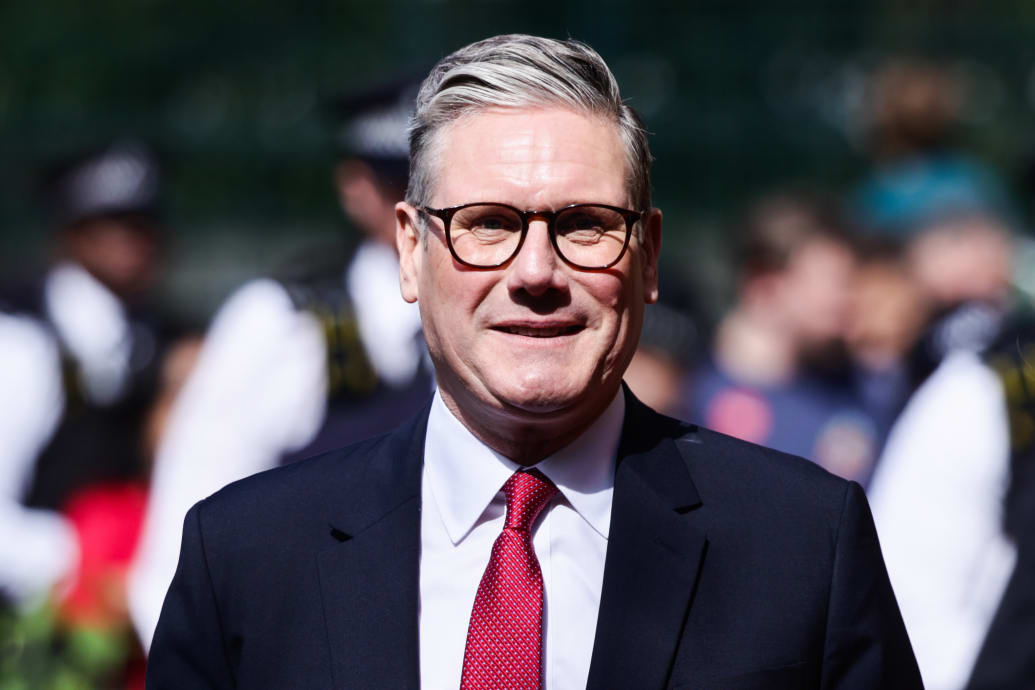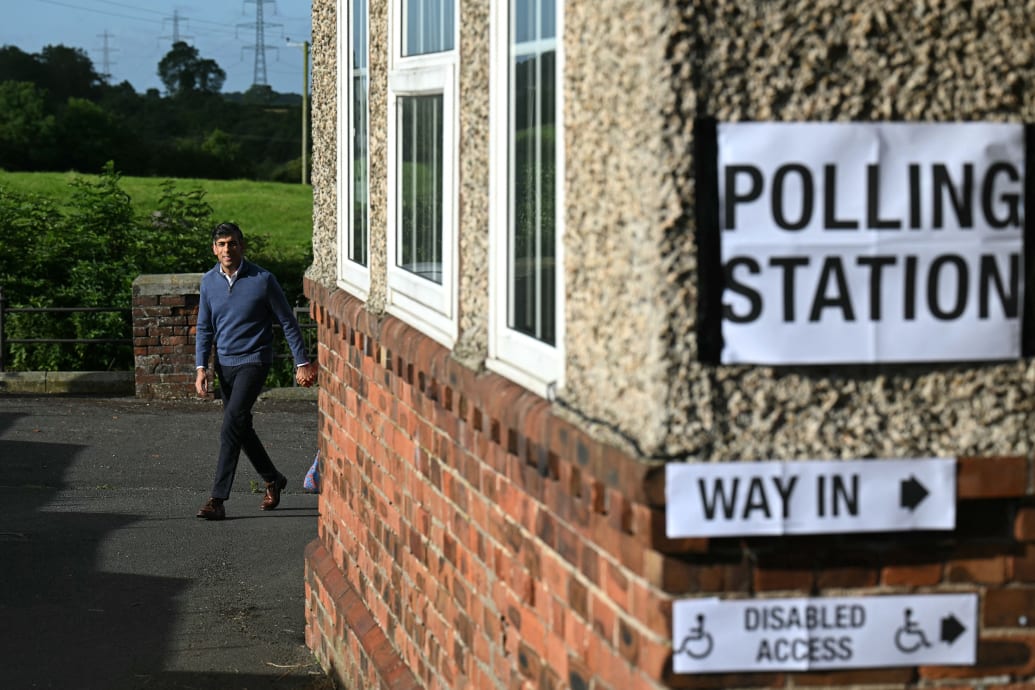LONDON – The Conservatives, the world’s most successful political party, were ousted from power in dramatic fashion on Thursday after 14 years of chaotic and divisive rule.
The poll, conducted at 10 p.m. local time (5 p.m. EST), showed Labour had won a landslide victory, ending an era of Conservative rule in Britain that stretched back to 2010, the year the iPad and Instagram were launched and Lady Gaga wore a meat dress to the MTV Video Music Awards.
During that period, the Conservatives went through five leaders, each of whom dragged the party down in the polls. It was Rishi Sunak who was eventually defeated by a huge margin after waging the worst election campaign in living memory. “A devastating night for the Conservatives,” said Andrea Leadsom, a former leadership candidate.

Keir Starmer arrives to vote on election morning.
Jakub Borzycki/Getty
The campaign got off to a shaky start when the prime minister shocked the country – first by announcing a snap general election – and then by doing so outside 10 Downing Street in torrential rain that soaked his carefully tailored suit, his words drowned out by an old Labour election anthem played by an adventurous protester in Downing Street.
Surprisingly, the campaign went downhill from there. Sunak made a blunder when he left early at a memorial in France where President Joe Biden and President Emmanuel Macron stood side by side to mark the last major anniversary likely to be attended by World War II survivors. Voters were dismayed, despite Sunak’s apologies, and then Nigel Farage managed to woo traditional and right-wing voters with his rebellious reform party, inspired by the slogan “Make America Great Again.” Polls suggested a major breakthrough for Farage’s party, which could secure it 13 seats in Parliament.
The poll predicted Labour would win 410 seats (just eight fewer than Tony Blair won in 1997) and the Conservatives just 131, the lowest tally in the party’s nearly 200-year history. Since its founding in 1836, the Conservatives have become the most successful party in any multi-party country in the world.
As the Tory recriminations began, veteran MP Michael Fabricant said: “Never in the history of a general election have so many people been let down by so few.” A few hours later, Fabricant lost his seat, along with a large number of cabinet members who were ousted, some for major shifts to Labour or Reform. As the votes were counted in the early hours of the morning, it looked as if the party might do worse than the pollsters had predicted.

Rishi Sunak voted on Thursday morning, hoping to avoid losing his seat.
oli scarff
The new British prime minister will be Sir Keir Starmer, the former chief prosecutor. Starmer has taken a cautious approach, dubbed the “Ming vase” strategy, in trying to carry his carefully crafted coalition of voters over the finish line.
After the party underperformed polls in the 2017 and 2010 elections, and in 1992, when everyone expected them to return to power, Starmer became the fourth Labour leader to lead his party from opposition to power in the century since its founding.
In his speech in north London, Starmer gave a short address to local activists. He said: “Tonight, people here and across the country have spoken, and they are ready for change; to end performance politics and return politics to being a public service. You voted. Now it’s time for us to deliver.”
Labour’s Bridget Phillipson was the first MP to be formally elected that night and wasted no time in declaring her party’s victory nationwide. She said: “After 14 years, the British people have chosen change, they have chosen Labour and they have chosen Keir Starmer’s leadership. Hope and unity, not decline and division.”

“Lifelong food lover. Avid beeraholic. Zombie fanatic. Passionate travel practitioner.”
